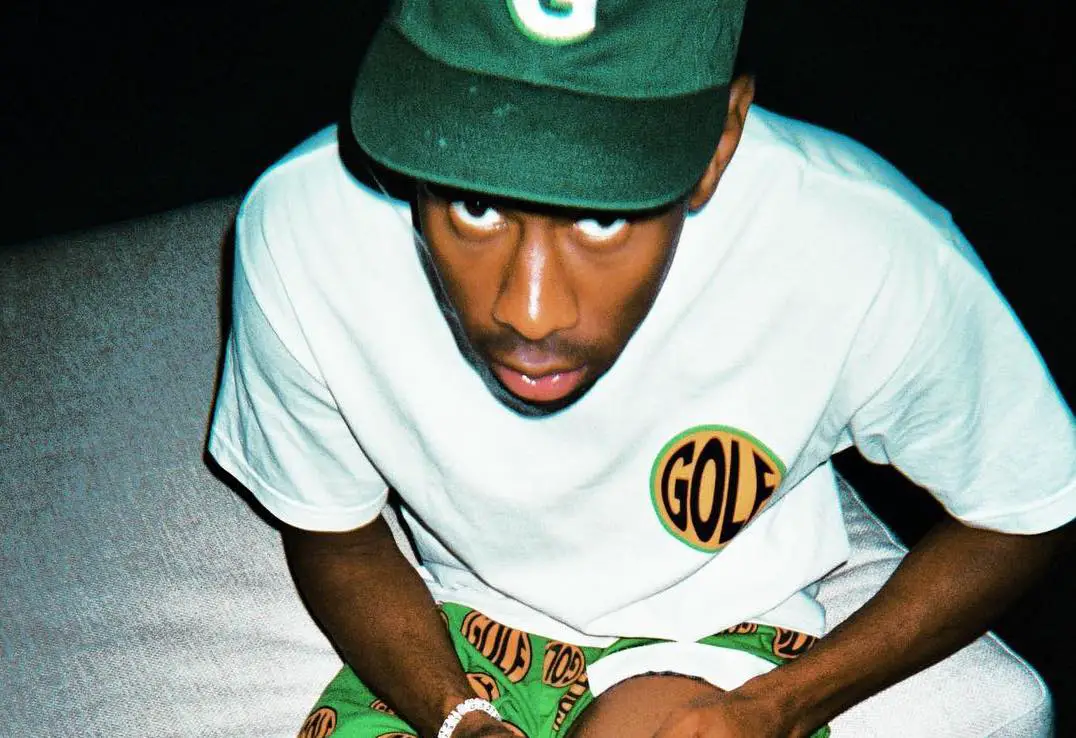A hip-hop artist who has their feet planted in both sides of the creation process brings an astounding advantage to their sound. Indeed, rapper-producer combos, such as the handful I have listed below, are able to mold their voice to their instrumentation in the exact ways they themselves visualize.
They are more involved in the post-production process, and they have a knack for making aesthetically pleasing rap music from both a sonic and vocal perspective, which is rarely achieved but beloved.
It is uncanny how much work goes into both the vocal and production side of crafting captivating rap joints, so artists who grapple with both sides deserve immense respect. These do-it-all members of the ever-evolving rap kingdom are, in my mind, the top five rapper-producer combos currently making music.
5. NAV
The Canadian rap artist NAV broke into many of our music libraries after he featured on Travis Scott’s hit track, “Beibs in the Trap,” which he produced back in 2016. He then went on to drop his own hit single, “Myself,” a cut he wrote and produced himself.
The wavy arrangement of electronic synths and depressing melodies of “Myself” led to Nav’s major label debut album with Drake’s XO Records, self-titled “NAV.” The artist had production credits on all 11 tracks of “NAV,” reflecting the do-it-on-his-own mentality that he flaunts on his single “On My Own,” which has amassed a scorching 20 million plays on Soundcloud.
His instrumentals are vibrant and intoxicating, usually grounded in quaking basslines. His vocals are heavily enhanced by vocal effects and auto-tune, but he delivers it over his new-age instrumentation both blissfully and savagely, when necessary. His in-house partner Drake even put his producing skills on display, employing him in a lineup of co-producers for the Meek Mill diss-track “Back to Back.”
More recently, he headed production for the track “Friends” last summer off Jay-Z and Beyoncé’s collaborative album “THE CARTERS.” NAV’s skills on the production side have been noticed by esteemed artists as he continues to build his own discography, releasing his second and third solo album “Reckless” and “Bad Habits” in a span of two years.
However, NAV’s role on the production side of his own music has faltered a bit, as he is seen with less and less of each of his track lists’ production credits as he continues to release albums. I see “Dark Habits” as NAV’s best effort at a full-length project to date, so incorporating outside producers more often seems to be benefiting his music. I do think NAV’s songwriting could be greatly improved from its over-coarseness and, at times, cheesiness, but he seems to be sharpening his lyrics more adamantly in recent cuts.
4. Travis Scott
Most don’t know Scott was engrained in the hip-hop scene as a producer years before the release of his debut album, “Rodeo.” In as early as 2012, the Houston-based artist was a contributing producer to the compilation album released by Kanye West’s G.O.O.D. Music Record Label. He then went on to produce for Wale’s studio album “The Gifted” and Jay-Z’s “Magna Carta Holy Grail” in 2013, while working on his mixtapes “Owl Pharaoh” and “Days Before Rodeo.”
In his own music, Scott incorporates multiple producers on most of his tracks; sometimes he’s a part of the production lineup and sometimes not (he is credited on fewer and fewer tracks on his latest albums). Nonetheless, Scott is always the executive producer for his albums, which might be the reason why his songs have alluring transitions to each other and a glistening aesthetic. As he says in “SICKO MODE,” “Who put this s—t together, I’m the glue.”
Scott’s music is so lucid and sonically boundary-spanning because he is terrific at building the right production team around his projects. Recruiting brilliant, yet unexpected producers to the table like Tame Impala for tracks “SKELETONS” and “ASTROTHUNDER” off of “ASTROWORLD” is a staple to his style.
Scott might not necessarily do it all himself, but his ability to bend and warp an instrumental for his appearances is a result of his dual background. He may be drifting away from producing more as his career ensues, but his rapper-producer portfolio plays an essential role in enticing rap fanatics everywhere.
3. J. Cole
J. Cole has been producing for about 18 years and has released five solo studio albums over the span of his career. On his early mixtapes, like “Friday Night Lights” and “The Warm Up,” Cole headed the majority of the production for each lengthy project, exerting sample-heavy tracks with both semi R&B and rap-banger production. His dual background must have played a part in Jay-Z making him the first artist he ever signed to his “Roc Nation” label.
After the deal, Cole footed around 75 percent of the production on his debut “Cole World: The Sideline Story,” incorporating only three co-producers and three guest-producers. His effort was an astounding success, as he produced the instrumentals for boppy yet smooth hit-tracks “Work Out,” sampling “Straight Up” by Paula Abdul and “Nobody’s Perfect (feat. Missey Elliot),” alongside several instrumentally rich deep-cuts, such as “Lost Ones” and “Breakdown.”
The North Carolina-based rapper is without a doubt a master of moods, which he achieves to its fullest effect by being heavily involved in both the production and performance of his songs. In his second and third albums, “Born Sinner” and “2014 Forrest Hills Drive,” Cole outsourced production responsibilities more frequently than in the past, but was still involved in some of the tracks.
Then, his fourth album, “4 Your Eyez Only,” stood as the first project in which Cole held production credits on every track. Although the album faced moderate distaste from critics, Cole continued with the strategy and took a hand in producing every track of his high-quality 2018 album, “KOD.” J. Cole also heads his own record label, “Dreamville,” where he has signed artists EARTHGANG and J.I.D.
2. Tyler, the Creator
Tyler, the Creator has literally almost self-produced almost every piece of music he has ever released. He produced every song off his first solo project, “Bastard,” as well as created the music videos and artwork for the album. “Goblin,” his second full-length, included the producer Left Brain who produced “Transylvania” and co-produced “Fish” with Tyler, but otherwise Tyler footed the production for the other 16 tracks.
For his next two albums, “Wolf” and “Cherry Bomb,” Tyler remained fully in charge of the instrumentation of his music, minus some appearances from Pharell, Mike Einzeger and a few others. However, he was the sole producer of his latest, and arguably best album, “Flower Boy,” because of the vast production on the tape.
His ability to play the drums and piano and then incorporate them into his beats is admirable. Tyler crafts very animate, experiential beats with a massive palate of quirky noises, and he incorporates classical-sounding background vocals into his music too.
Tyler is also very playful with the structure of his songs, bending the preconceived rules of rap tracks. For instance, on his first two projects he distorts his voice to an extremely low tone and interviews himself as his own therapist. His songs are like deranged cartoons for the ear because of their narratives, characters and boisterously colorful sound.
In addition, his bars rarely falter, packed with witty comparisons and wordplay delivered with his abrupt, deep-voiced delivery. Tyler, the Creator is without a doubt a creative genius and his current position in the rap game is a product of his work ethic. Tyler does it all and always impacts his listener both lyrically and sonically.
1. Kanye West
West may be the only member of this list that would still be a legend even if he didn’t write raps. Beginning his career as a producer, making beats for Jay-Z’s “Blueprint” and other high-profile artists in the early 2000s, West became a superstar after the release of his debut solo album, “The College Dropout,” which he entirely produced all himself.
From there, over the span of his 20-year career, he acted as the primary vocalist and headed the production for “Late Registration,” “Graduation,” “808s and Heartbreak,” “My Beautiful Dark Twisted Fantasy,” “Yeezus,” “Life of Pablo” and “ye,” a part of his 2018 Wyoming campaign where he produced five albums in a matter of months.
The diversity of sound and style throughout West’s career is astounding. In his first two albums, he employs glorious vintage-sounding instrumentation with blues and jazz noise, as well as soulful gospel background vocals and samples that paint the environment for “ye to be ye,” but the style peaks in “Life of Pablo,” 11 years later. In that gap, West innovated his sound with auto-tuned singing ballads and heavy electronic production. As a result, the rapper-producer absolutely flabbergasts his audiences with the sublime array of samples, sounds and structures laced into track lists.
Although “ye,” may be his weakest solo project to date, his ability to pull off his Wyoming campaign by producing not only “ye,” but “DAYTONA” by Pusha T, “KIDS SEE GHOSTS” by himself and Kid Cudi, “Nasir” by Nas and “K.T.S.E.” by Teyana Taylor reflects how West is still on top and the most esteemed example of a rapper-producer today.
















